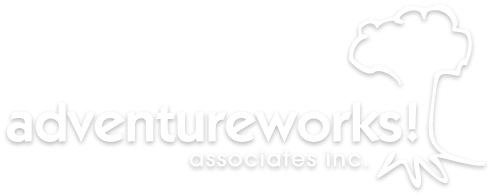Success Through Knowledge-Are you a D,I,S, or C?
/
How Extended DISC®
can help you and your group find success
Whether it is with family, friends, co-workers, or
customers, our most successful relationships depend on our ability to
effectively communicate, motivate, and relate to others. To be effective, knowledge about your
personal behaviour preferences is necessary and Extended DISC®
can help with that. The most successful people are confidently aware of their
behaviour tendencies and can leverage their areas of strength and flexibility
to contribute positively to their groups, teams, and communities.
What is Extended DISC®?
We all have personal behavioural preferences and this system helps
identify and leverage them. Extended DISC® is a behaviour analysis system designed
to measure our “hardwired” behaviours. This system differs from other
assessment tools as it is not a personality analysis and it helps identify
behaviours that are both conscious and unconscious. The Extended DISC® System is
based on the behavioural theories of Carl Jung who developed a model to
help understand ourselves and other people. The simplified or “user-friendly”
version of Jung’s model expresses behaviour preferences on 2 continuums:
Based on your preferences in these two continuums, you
likely fit into to one of 4 styles: D (Dominance); I
(Influence), S (Steadiness), C (Correctness). Because these styles are generic, and we as
humans are rarely 100% of one thing, the Extended Disc® Diamond was created.
The Diamond, simply put, expresses a blend of the 4 DISC styles. After
completing an online questionnaire, the Extended Disc® System plots you on the
Diamond. A profile report is then generated which includes over 20 pages about
your individual preferences, strengths, preferred roles, reaction to pressure
situations, and motivators (among other things). The report also expresses
items that require energy for you to accomplish and ways you can effectively
communicate with others who don’t share your behavioural preferences.
Why I like using the Extended Disc® System
I like to use the Extended Disc® tool for a variety of
reasons:
- It creates a common starting point for each group by providing a common language. This allows a group to identify individual and group preferences by “talking the same talk.”
- This tool helps me, as a facilitator, go “beneath the surface” with groups and allows group members to gain a deeper understanding of personal preferences and how the team currently functions. If group members can truly understand their personal preferences and those of other group members, true results can start to be realized.
- It is not a “can” or “cannot” scale. It helps to identify strengths as well as behaviours or actions that require some effort to achieve, but are not impossible. People can be successful no matter what their profile is.
- It provides some great strategies and suggestions for approaching others and leveraging the best out of individuals who don’t share behavioural preferences.
- As a facilitator it helps me to identify and understand a group’s behaviour and performance preferences, as well as things that require some effort to achieve, often before I even start working with them. This prior knowledge is great as it can allow me to really help a group achieve their desired goals.
- There are many experiential and adventure-based activities that can be used with the Extended DISC® system to bring “learning to life” and help groups achieve their desired outcomes or goals.
- It is useful for a variety of groups, teams, organizations, and individuals. I have found success using it with College Human Relations Labs, Student Administrative Counsels, Corporate Teams, Child Care Teams, and Summer Camp Teams.
If you want to learn more about the Extended Disc® System and how it can
help your group, team, or organization, or if you would like to share your Extended
Disc® success stories, please feel free to contact me. Have fun out there!





